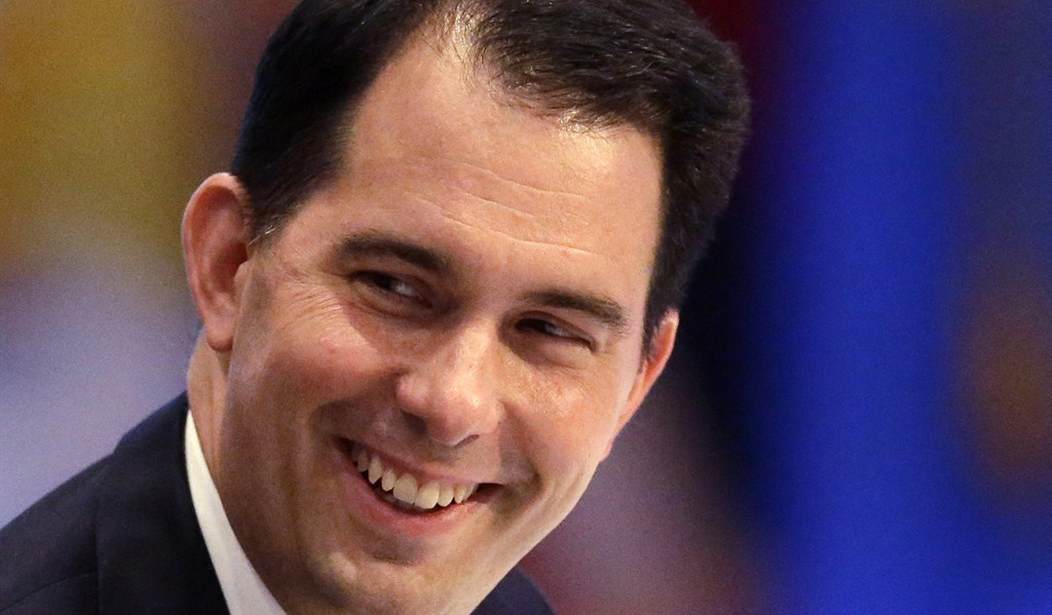Less than 3 years after Wisconsin Governor Scott Walker signed his collective bargaining reforms (Act 10), more than 100,000 union members have left Big Labor. The Left has fought these reforms at every step, but when workers are given the choice, they have overwhelmingly voted to leave government unions. Wisconsin’s reforms prove that public sector union representation is becoming an antiquated idea. Other states should follow Wisconsin’s example and provide government workers with the freedom to vote on union representation.
On Thursday, more than 70 local unions failed their re-certification votes with over 5,500 employees walking out on their unions as a result. Thursday was the deadline for many public sector unions to vote for the first time whether they would have union representation. Part of Act 10 was the requirement that government unions annually hold a re-certification vote. Many labor unions pre-empted their reforms through ramming through contract extensions for various lengths of time. Consequently, Thursday marked the end of the first voting period for many unions across the state.
Prior to this week’s re-certification votes, numerous reports have come out about loss of union membership. While it is very hard to pin down the exact number of "members" the unions have lost largely because unions are not willing to release this information, we can come up with a minimum estimate of union dues paying members who have left their respective unions based upon publicly available information.
In May 2012, The Wall Street Journal reported that American Federation of State, County and Municipal Employees (AFSCME) had lost 34,073 and at least 2,455 have left since then. American Federation of Teachers- Wisconsin (AFT-Wisconsin) told the Wisconsin State Journal that they had lost about 5,250 members, while the UW-Madison Teaching Assistants’ Association lost 1,350 members. Wisconsin Education Association Council (WEAC) lost around 50,000 members prior to this latest round of voting. Even the Wisconsin Professional Police Association lost 1,700 members. In total, the public reports indicate Wisconsin unions have now lost more than 100,000 members since Act 10 became law.
Recommended
Big Labor’s playbook to stop these reforms has failed. First, they flooded Madison with protesters from across the nation, then their State Senators fled to Illinois to prevent a vote. After they inevitably returned and the bill passed, they tried to not publish the bill to prevent it from becoming law. When that failed, they went to court to halt the law. The Wisconsin Supreme Court ultimately weighed in and said the collective bargaining reforms did not violate the Wisconsin Open Meetings Law. But that didn’t stop the recalls, several more lawsuits and other temper tantrums from the Left.
Now we know exactly what the Left was so scared of: government workers having a choice about whether they are represented by a union. Perhaps more importantly for the union bosses is a loss of union dues in the millions of dollars. Conservative estimates show that with 100,000 members opting out of unions, around $60 million less will be flowing to unions in Wisconsin. In terms of pure political dollars (PAC Contributions), more than $2 million less will be at the Left’s disposal for upcoming election spending and lobbying. Gone are the days of public sector unions going unchecked, ripping off Wisconsin taxpayers, and amassing war chests full of political money.
States need to follow in Wisconsin's footsteps to allow freedom for government employees and relief for taxpayers. Wisconsin shows that public sector union representation is not providing value to their members and public sector unions are on the decline. Government workers in all states should have the right to vote on the value of the public sector unions’ services. After all, out of state union protesters came to Madison after Act 10 was introduced and shouted, “This is what Democracy Looks Like!”

























Join the conversation as a VIP Member